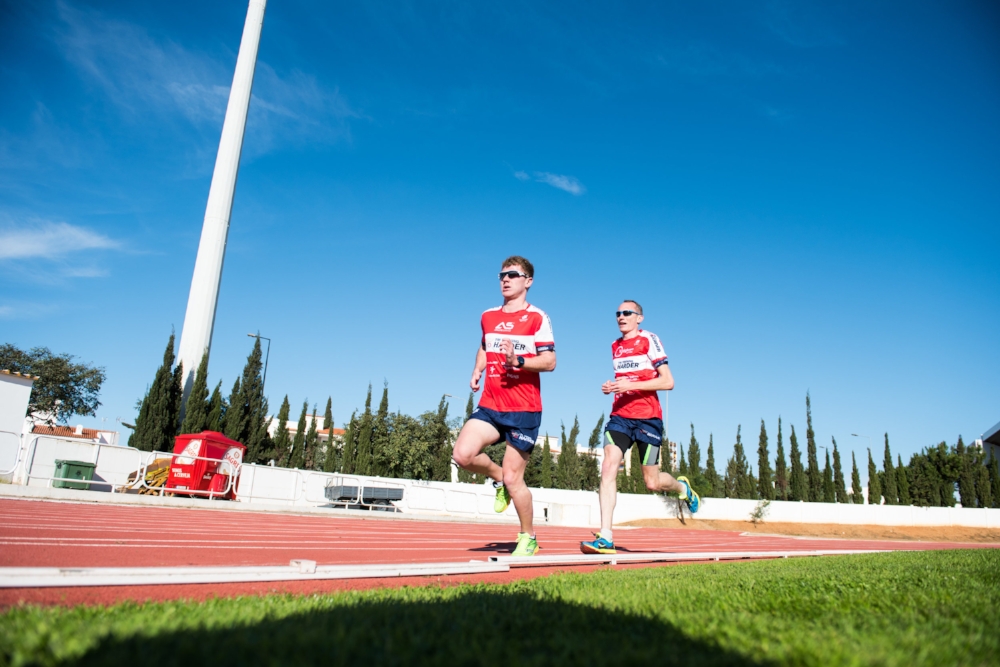How to train for speed in the winter?
As we all know training changes with time. It doesn't stay the same week in week out forever. One way that coaches organise and structure these changes is with periodisation. Periodisation is simply the sequencing and prioritisation of different training focuses or stimulus into blocks of training at different times of the year or in the case of Olympic Cycles: years – four to be precise!
The most common understanding of periodisation is the one in which (presuming you are racing in the Northern Hemisphere Summer) you start slow and steady in the dark winter months of November and December, keeping the effort and heart rate low and working on your aerobic fitness, before building training, volume and intensity gradually in the New Year to reach a peak load around or just after Easter. After which you then go through some very competition specific training before the race itself: Linear Periodisation, but is this what everybody does?
Is Linear Progression the status Quo?
(Side note - Pros do things very differently and can be on all sorts of variations due to needing to earn money at regular intervals)
Most athletes now are on some sort of conjugated periodisation which basically means a mix of a little bit of everything all of the time with more subtle changes in focus. This includes speed and strength work and the key is getting the mixture of training stimulus right for that specific athlete at that exact time. This is an ever-changing target and one that underlines why you shouldn't necessarily do exactly what your friend/that pro/that fast athlete etc are doing.
How do you Get Speed Work in Winter?
Stay Indoors
Avoid the cold and injury/slip risk and keep warm. In cold conditions almost every physiological factor involved in exercise is down on performance. The turbo and treadmill can be your friend!
Decrease in Metric Focus
Remember to interpret as well as read any data based feedback you are getting. As I have said above your body is simply not working as well as it does in the warmth of summer. Pushing to run (insert pace/power here) could be the biggest downfall in your training. If there is a head wind the ground is wet and slippery take all of this into account and tune into your surroundings as well as what your watch is recording! Be a smart and mindful athlete.
Realise it isn't summer
This sounds perhaps like a daft point to make but it is often overlooked, often I have heard athletes being downhearted because their metrics are down on where they were in Summer! Compare like for like and always look at where you were this time last year. With this try to take a step back and look at training over the last few weeks, one week of bad weather/slow conditions doesn't make you all of a sudden a bad athlete.
Is the winter best time to go and try and "smash" out fast reps?
Reduce Intensity/Duration/Precision of efforts
Fartlek or Hill Repeat sessions can be your friend here. With Fartlek sessions their variable nature softens the edges of intervals and allows for a little more feel for pace to come into things. Not pushing the absolute limit can be an extremely good idea no matter how important that up coming fun race is. This could be as simple as doing more reps at Half Marathon pace or 10k pace for example rather than your 400m and 1km best efforts. It is a long way to summer.
Focus/redistribution of training to 'other' areas
Part of going indoors can be going to the pool, why not go with the grain of things when the weather is bad and use this time to spend more time focusing on frequency and volume within your swimming. Perhaps a warm and wet double swim day is preferable to getting freezing cold (and probably wet!) outside twice in one day with bike and run sessions.
This could also mean a little more time in the gym than you normally do. This can all be part of the phasing of your training: a focus on three to four gym sessions per week now could pay dividends later in the season when the sun is shining and you are doing speed work outside. Furthermore, you are also very likely to reduce the chance of injury further on as well.
Go Abroad to train
Seriously! The warmth is the critical factor here, in cold conditions the likelihood of injury increases sharply. This combined with New Years over ambition can quickly lead to injury.
...Now I just have to think "if only I knew a company that did great training holidays in the sunshine"...

